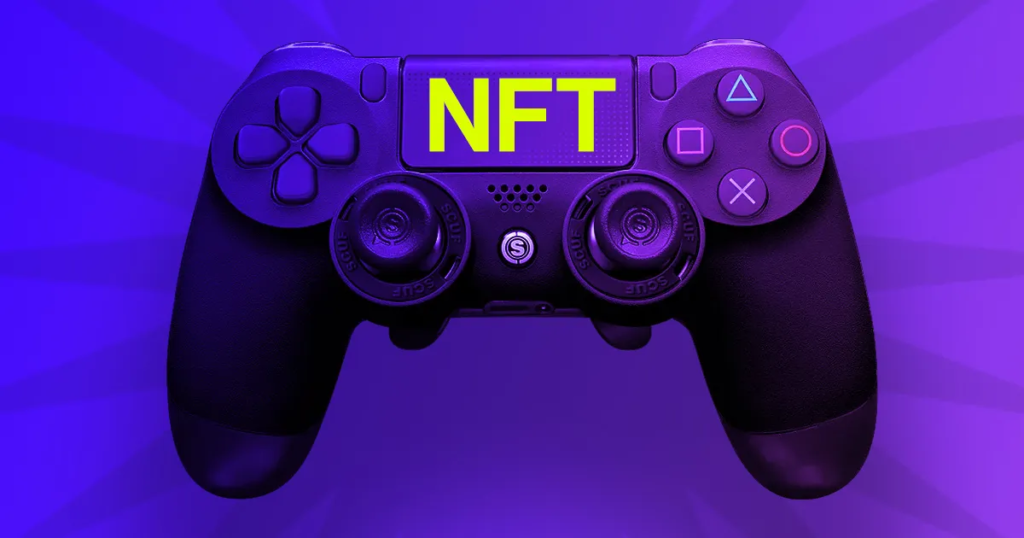NFT gaming, short for Non-Fungible Tokens (NFTs) gaming, represents a revolutionary intersection of blockchain technology and the gaming industry. In recent years, NFT gaming has gained significant traction, offering players unique opportunities to own, trade, and interact with digital assets within gaming ecosystems. In this article, we delve into the concept of NFT gaming, its mechanics, and its impact on the gaming landscape.
Understanding Non-Fungible Tokens (NFTs):
Non-Fungible Tokens (NFTs) are unique digital tokens that represent ownership or proof of authenticity of a specific asset or item. Unlike cryptocurrencies such as Bitcoin or Ethereum, which are fungible and interchangeable, NFTs are indivisible and distinct, each possessing its own distinct attributes and properties. NFTs are typically built on blockchain platforms like Ethereum, leveraging smart contracts to manage ownership and transfer of digital assets.

The Role of NFTs in Gaming:
In the context of gaming, NFTs represent in-game assets, collectibles, and virtual items that players can own, trade, and monetize. These assets can include digital artwork, skins, characters, weapons, land parcels, and other virtual goods. NFT gaming platforms utilize blockchain technology to authenticate the uniqueness and ownership of these digital assets, providing players with verifiable proof of ownership and enabling secure peer-to-peer transactions.
Mechanics of NFT Gaming:
NFT gaming platforms operate on decentralized blockchain networks, where players can acquire, trade, and interact with NFT-based assets. Players have the freedom to buy, sell, and exchange NFTs within gaming ecosystems, creating dynamic virtual economies and marketplaces. Additionally, NFTs in gaming often come with provable scarcity and rarity, with some assets being more valuable and sought after than others due to their uniqueness or attributes.
Benefits of NFT Gaming:
NFT gaming offers several benefits for players, developers, and creators alike. For players, NFTs provide true ownership of digital assets, allowing them to exert greater control over their in-game experiences and investments. NFTs also enable players to participate in decentralized gaming communities, engage in collaborative gameplay, and monetize their skills and achievements. For developers and creators, NFTs offer new monetization models, revenue streams, and opportunities for player engagement and retention.
Examples of NFT Gaming:
Several NFT gaming projects and platforms have emerged, showcasing the diverse applications and potential of Non-Fungible Tokens (NFTs) in gaming. Examples include decentralized virtual worlds like Decentraland and The Sandbox, blockchain-based trading card games like Gods Unchained and Axie Infinity, and digital collectible platforms like CryptoKitties and NBA Top Shot. These projects demonstrate the versatility of NFTs in enabling immersive, interactive, and decentralized gaming experiences.
Challenges and Considerations:
Despite its promise, NFT gaming faces challenges and considerations, including scalability issues, environmental concerns related to blockchain energy consumption, regulatory uncertainties, and the need for user-friendly interfaces and interoperability standards. Additionally, the speculative nature of NFT markets and the potential for fraud and manipulation require careful attention from stakeholders and regulators.
Conclusion:
In conclusion, NFT gaming represents a groundbreaking paradigm shift in the gaming industry, offering players unprecedented ownership, autonomy, and engagement within virtual worlds. As NFT gaming continues to evolve and mature, it holds the potential to redefine how players interact with digital assets, create value, and participate in gaming communities. By leveraging the power of blockchain technology and Non-Fungible Tokens (NFTs), the future of gaming is poised for innovation, inclusivity, and decentralization.